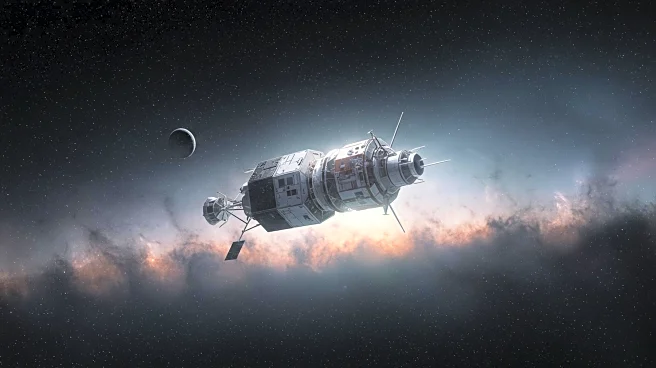What is the story about?
What's Happening?
NASA's Juno spacecraft, renowned for its exploration of Jupiter, is at the center of a significant debate regarding its potential new mission. The proposal involves redirecting Juno to intercept an interstellar object known as 3I/Atlas. This initiative is notably supported by Harvard astrophysicist Avi Loeb, who sees it as a unique opportunity to collect unprecedented data from an object originating outside our solar system. The discussion around this potential mission was highlighted in a recent podcast episode, where experts debated the scientific benefits and logistical challenges involved. The mission would require significant adjustments to Juno's current trajectory, fuel, and instrumentation, raising questions about the spacecraft's capabilities to undertake such a task.
Why It's Important?
The debate over Juno's potential retasking underscores a broader tension in space exploration between adhering to pre-set scientific goals and seizing unforeseen opportunities. Successfully redirecting Juno to study an interstellar object could provide groundbreaking insights into the nature of such objects, which are rarely encountered. This could significantly advance our understanding of interstellar phenomena and contribute to the broader field of astrophysics. However, the mission also poses risks, as it would divert resources and focus from Juno's original mission objectives related to Jupiter and its moons. The outcome of this debate could influence future decisions on how space missions are planned and executed, potentially setting a precedent for flexibility in mission objectives.
What's Next?
If the decision is made to proceed with the retasking of Juno, NASA would need to undertake a detailed assessment of the spacecraft's current condition and capabilities. This would involve recalibrating its trajectory and ensuring it has sufficient fuel and operational capacity to reach and study 3I/Atlas. The scientific community and NASA stakeholders will likely continue to weigh the potential benefits against the risks and costs involved. The outcome of this decision could also prompt discussions on the allocation of resources for future missions and the prioritization of scientific objectives in space exploration.
Beyond the Headlines
The potential retasking of Juno raises important questions about the flexibility and adaptability of space missions. It highlights the need for a balance between planned scientific objectives and the ability to respond to new opportunities that arise. This debate also touches on ethical considerations regarding the use of public funds in space exploration and the responsibility of space agencies to maximize scientific returns. The decision could influence future mission planning, encouraging a more dynamic approach to space exploration that allows for adjustments based on new discoveries and technological advancements.















